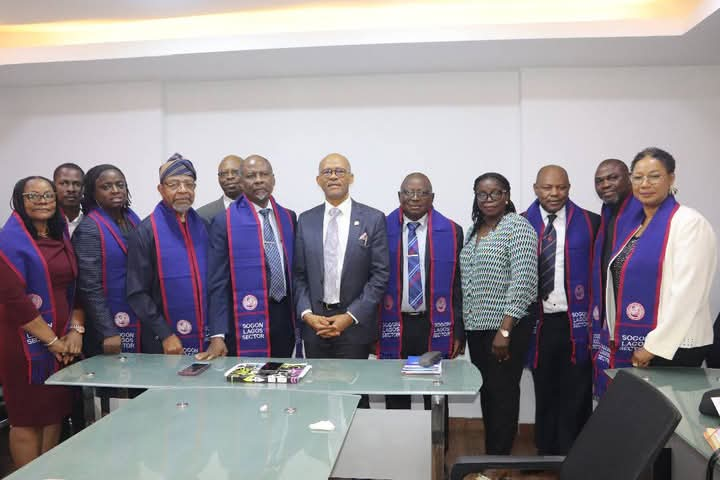In a renewed effort to curb maternal and neonatal mortality, the Lagos State Government has strengthened its partnership with the Society of Gynaecology and Obstetrics of Nigeria (SOGON).
Maternal and neonatal mortality are deaths related to pregnancy, childbirth, and the period shortly after birth.
This was made during an advocacy visit by SOGON executives to the Commissioner for Health, Akin Abayomi, at the Ministry’s office in Alausa, Ikeja.
The delegation was led by former SOGON National President Rotimi Akinola and Lagos Sector Chairman Abidoye Gbadegesin.
Abayomi emphasised that maternal and infant welfare must remain a top priority in Lagos’ public health investment agenda.
Describing human capital as the state’s most critical infrastructure, he drew parallels with Southeast Asia, where governments invest heavily in family health to secure the future.
“Childbirth is one of life’s most traumatic transitions. Whether natural or assisted, we must make it as safe as possible for both mother and child,” he said.
The Commissioner applauded SOGON’s voluntary offer to support maternal and reproductive healthcare and described the society’s 350-member strong workforce as a valuable asset in addressing the acute shortage of specialists in public hospitals.
Abayomi also pledged to incorporate SOGON’s proposals, including reviving the Voluntary Obstetrician Service Scheme (VOSS), into the Ministry’s strategic planning.
He called for relevant data on the World Health Organisation’s doctor-to-population ratio and the current state of residency training programmes in Lagos to guide policy formulation.
He underscored the importance of inspiring young doctors to pursue careers in obstetrics and gynaecology through mentorship and early exposure, urging SOGON to play a central role in grooming the next generation of specialists.
On broader reforms, the Commissioner restated the government’s commitment to decentralising obstetric care and redesigning Maternal and Child Care Centres across the state.
He also addressed the sensitive issue of pregnancy termination, calling for a discreet, policy-aligned approach to reduce preventable deaths, while maintaining alignment with existing guidelines.
In his presentation, Akinola advocated for legislative backing for the Maternal and Perinatal Death Surveillance and Response (MPDSR) programme, which has operated within the ministry for over a decade without formal legal support.
“The draft legislation is ready. We appeal to the Commissioner to push this forward to institutionalise the process,” he said.
He also noted that unsafe abortions contribute to around 13% of maternal deaths in Lagos.
“SOGON is not calling for abortion on demand, but for safe, medically indicated terminations in line with national guidelines. This is about saving lives, not sparking moral debates,” he clarified.
Meanwhile, Gbadegesin reaffirmed SOGON’s commitment to women’s health and called for closer collaboration with the government in policy formulation and implementation.
“We speak for over 350 obstetricians and gynaecologists in Lagos. Women’s health is our core mandate,” he stated.
He further warned that deploying unskilled birth attendants during labour remains a significant contributor to maternal deaths, referencing WHO and FIGO guidelines that mandate skilled care during childbirth.
“Anything less is a ticking time bomb,” he said.



